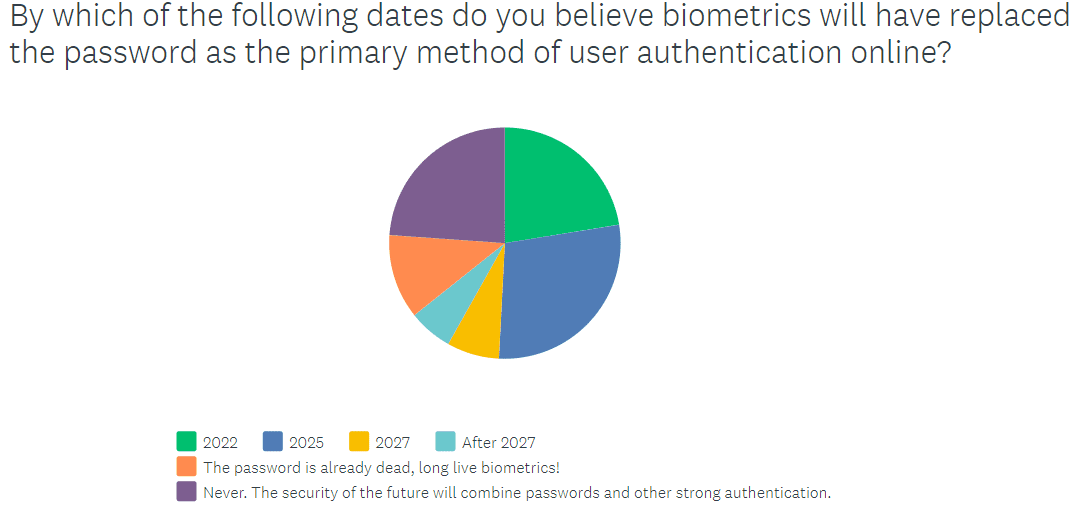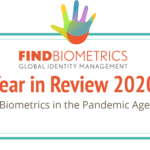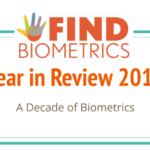Despite the obvious superiority of biometric authentication as a security mechanism, the password has stubbornly persisted as the most mainstream form of digital security. Still, many believe that this is going to change, and that the password’s days are numbered – and that’s illustrated quite clearly in FindBiometrics’ latest Year in Review survey.
Question #8 of the survey asked respondents how soon they thought biometrics would replace the password as the primary method of authentication online: by 2022, by 2025, by 2027, or sometime after 2027? It also offered the options of “The password is already dead, long live biometrics!” and “Never. The security of the future will combine passwords and other strong authentication methods like biometrics.”

Most respondents think the password is doomed to be displaced by biometrics within the decade. The winning selection was the year 2025, which garnered 28.4 percent of the vote, while 22.5 percent said they think it will happen by 2022. 7.3 percent said biometrics will replace the password by 2027, and just over six percent said it would happen sometime after 2027.
Obviously, this audience is biased in favor of biometrics. Nevertheless, the excitement is understandable. In less than a decade, biometric authentication has become commonplace on mobile devices, with virtually every smartphone using a fingerprint sensor or facial recognition to unlock its screen. (This might be part of the reason some survey respondents indicated that ‘the password is already dead’.) Biometric authentication is also making inroads into other kinds of devices, such as PCs, with one leading fingerprint sensor vendor having predicted that this will be an important growth area in its latest fiscal update. Meanwhile, an increasing number of businesses and other organizations are implementing biometric authentication for employees.
One of the arguments in favor of accelerating adoption is the idea that familiarity with biometric technologies helps to foster a positive feedback effect: as end users get more comfortable authentication via biometrics, that will lead to increased demand for biometric authentication across more applications (eg., iPhone users might want to start using Touch ID on their MacBooks), and the resulting deployments will lead to even greater familiarity with biometrics.
There have now been multiple studies indicating that familiarity with biometric authentication does indeed result in greater comfortability with the technology among end users, so it’s a logical thesis for greater adoption. And if it’s true, this general process could accelerate in the wake of the COVID-19 pandemic, which has prompted a massive uptick in the use of biometric authentication for the purpose of remote onboarding. Lockdowns and related social distancing measures have forced consumers into digital channels, and a number of banks, businesses, and other organizations have responded by embracing biometrics for remote identity verification. That means a whole lot more consumers are getting acquainted with biometrics.
That having been said, about a quarter of Year in Review survey respondents indicated that they don’t think the password is going anywhere. They agreed that biometrics and other strong authentication methods are more likely to play a complementary role as adoption increases, boosting end users’ security while passwords continue to remain in play. Even Apple, the pioneer of fingerprint- and face-based mobile authentication for consumer handhelds, still uses passcodes on its mobile devices, where they play a failsafe role in the event that biometric authentication doesn’t work.
It’s also worth noting that the responses to this part of the FindBiometrics Year in Review survey are virtually unchanged from last year, when 59 percent of respondents said they expect biometrics to replace the password within the next decade, and 26 percent said it would never happen. The answers are going to have to change soon: 2022 isn’t far away, and is only getting closer. So it will be interesting to see how responses change in a year’s time, when the effects – and hopefully aftereffects – of the pandemic have had time to settle in.
*
The 2020 FindBiometrics Year in Review is made possible by our sponsors: Aware, BioConnect, FacePhi, Innovatrics, Jumio, NEC Corporation of America, and Onfido.
–
February 23, 2021 – by Alex Perala








Follow Us